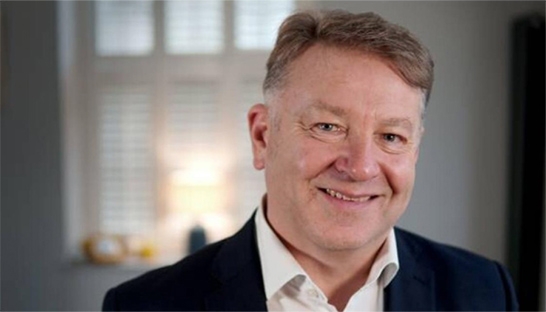

Chris Gibson explains how his life, military career and business experiences have yielded important lessons, which consultants and their clients could benefit from.
Chris Gibson is a decorated former British Army Colonel who has spent over three decades leading elite teams in some of the world’s most complex crisis zones. From hostage rescues in Beirut to tackling the Ebola outbreak in West Africa, his career reflects resilience under pressure. Today, he translates these battlefield lessons into actionable insights for organisations worldwide.
Explaining how high-pressure environments have given him important insights for his current work, Gibson notes, “Chaos doesn’t kill innovation. Bureaucracy does. In Iraq, we innovated close protection tactics for intelligence services and the prime minister because we had permission to act. Chaos forces urgency, and change needs momentum. That urgency is the catalyst for innovation, so sometimes chaos is actually a good thing for innovation to occur.”
He adds, “Some conditions have to be created for that. You have to flatten hierarchies so everyone’s idea is listened to. Reward risk-taking. Allow people to have freedom of movement within boundaries. Celebrate “good enough” now, rather than “perfect” later. For me, chaos is innovation’s unwitting ally – if you’re brave enough to let go of control.”
Now a renowned leadership speaker represented by Champions Speakers Agency, Gibson helps businesses and consulting firms foster cultures of clarity, trust, and high performance. Over his career as a consultant, he has also advised organisations across healthcare, government, and professional services on transformation programmes and cultural change. As such, he also has some key insights for the consulting profession, as it looks to adapt its offering to the changing needs of clients.
Particularly, people’s well-documented anxiety around change is something which consultants need to navigate, in an era where they are seeing results slow. To address this, consultants may benefit from a more conciliatory, partnership-orientated role with clients.
Gibson says, “Uncertainty, lack of clarity, and losing agency underpin a lot of the fear. If you can give that agency back, it starts to shift the paradigm. My experience in the military was that we didn’t tend to announce change – we encouraged it to be co-created. When we helped reduce violence in prisons, we involved officers in designing those reforms. Fear melts away when people see the “why”. Why are we doing it? Then allow them to shape the “how,” and celebrate small wins. It’s not about a speech – it’s about a partnership for me.”
Culture and resilience
He continues, “My key message is that culture is your secret weapon. Whether in a warzone or a boardroom, it’s the difference between success and failure. Culture eats strategy for breakfast. Get that right, and you’ll have a healthy business – or a healthy organisation. I also want people to leave with the conviction that anyone can lead. It requires conviction and some learning – but leadership isn’t about solo heroics. My rewards weren’t for being a lone hero; they were for enabling ordinary people to achieve the extraordinary. If I’ve inspired even one person to lead, to replace fear with trust, or complexity with clarity – I’ve done my job.”
Gibson’s life has taught him a lot about the resilience and empathy necessary to build for that kind of success. Drawing on his own journey, he advises consulting clients to adopt a forward-looking point of view, when facing organisational or personal crises.
Concluding, Gibson expands, “Last year, wherever I’d been in the world – El Salvador, Honduras, the Democratic Republic of Congo, Sudan – my resilience was pushed to the limit. But personally, having lost my wife to cancer and then having cancer myself, and coming out the other side, I’ve learned it’s about finding small daily wins. There are real dark days, no doubt about it. But if you can keep hope alive and focus on doing something positive every day—like walking, even when running wasn’t an option—that becomes your foundation.
“Now I’ve come out the other side and I’m back at it again. That practise gave me control, something to look forward to, and led to brighter days. It’s about visualising the future you want and doing what’s in your power to move towards it each day.”
link




More Stories
Career planning advice for grad students/mentors (opinion)
What I’ve learned as a new professional counselor
10 Year Anniversary | Fleishman Career Center